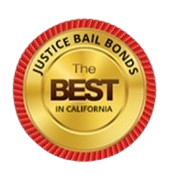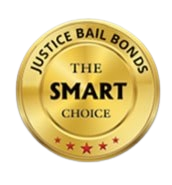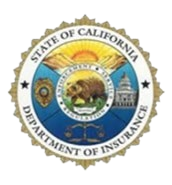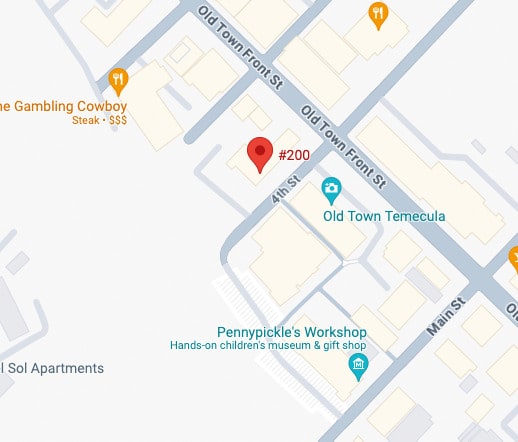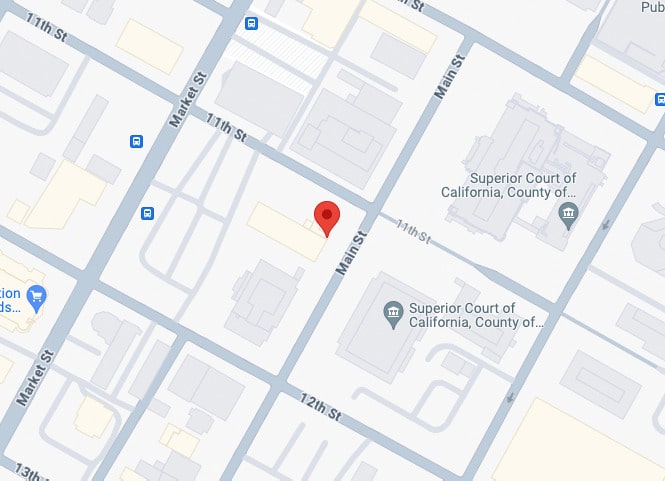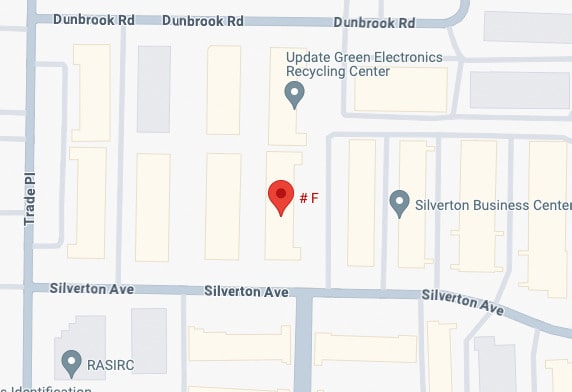Arrests and imprisonment are everyday occurrences, but not every defendant understands the bail process. As a defendant or arrestee, you have several options for securing a temporary release from jail upon arrest since you have not yet received a guilty verdict on the alleged charge.
In most cases, you will have multiple ways of securing your freedom after an arrest, including working with a bail bondsman to secure fast bail bond services. However, in some cases, the court could issue a cash-only bond, meaning you must pay the full bail price in cash to secure your pretrial release.
Despite what it could feel like during these challenging and confusing times, judges do not set cash-only bail bonds without a reason. Fortunately, with the help of a skilled attorney, you can go around cash-only bail to secure your freedom without unnecessary delay, go home to your loved ones, and move on without daily life before receiving your case’s judgment.
Reasons That Can Make the Court Issue You a Cash-Only Bail Bond
While every defendant has a constitutional right to post bail after an arrest, the court will decide the type of bail you should pay to secure your freedom. Among all the bail options available, the court could require you to pay a cash-only bail bond if:
You are a Threat to Public Safety
Public safety is undoubtedly the top consideration when determining whether to issue an arrestee a release from jail on bail. The court will likely issue you a cash-only bail bond if you threaten public safety. The facts and nature of your case will determine whether you are a threat to your community and the public.
For example, the court could find you a threat to public safety if the allegations you are up against involve sexual assault. In that case, there is a high chance the court could issue a cash-only bail bond to make it challenging for you to secure a pretrial release, pending the outcome of your case.
You are a Flight Risk
The court could consider you a flight risk if you are a non-citizen or alien. Being considered a flight risk by the court means there is a high chance you could flee the country or the state and fail to appear on your court dates to challenge the allegations you are up against.
When the judge considers you a flight risk, he/she will likely offer you a cash-only bail bond to secure your freedom. In that situation, you will rely on your attorney to help prove to him/her that you have no motive to skip bail after receiving your pretrial release. For example, your attorney can argue that:
- You have reliable employment
- You are an active community member
- You are a religious leader
You Have Unpaid Fines
The court will more likely issue you a cash-only bail bond if you have unpaid legal fines. Paying your bail in cash guarantees, you will pay your legal penalties as required. Fortunately, with the help of your attorney, you could convince the court to consider other bail release options, like surety bonds.
It would be possible for your attorney to prove that you do not have outstanding legal fines or a history of compliance in meeting any court-ordered financial requirement. The court will often use cash bonds to offset or reduce your unpaid fines.
You Have a Record of Skipping Bail
Attending all your court-scheduled hearings is undoubtedly one of the critical conditions for securing a release on bail because the court expects you to challenge the allegations you are up against. If you have a history of failing to appear in court after receiving a pretrial release on bail, the court could issue you a cash-only bail bond option during the bail hearing.
Paying cash bail could guarantee your appearance in your future court dates because you could lose the money when you fail to do so. Aside from affecting your chances of securing your release from jail on bail in any future arrest, failing to appear in court after posting bail (skipping bail) is a crime that could attract misdemeanor or felony penalties.
You Have Multiple Arrest Warrants from Other Jurisdictions
In most cases, the court will deny you bail if you have multiple arrest warrants from other jurisdictions. However, if you are lucky enough to qualify for a release from jail on bond, the court will issue you a cash-only bond option.
Generally speaking, having multiple arrest warrants makes you appear as a questionable individual in the eyes of the court.
You are a Repeat Offender
After an arrest, the court is more likely to issue you a cash-only bail bond option if you are a repeat offender. Having a criminal history shows you are a notorious offender unwilling to learn from past mistakes and punishment. In that situation, the court could issue a cash-only bail bond to keep you in custody and discourage you from committing another crime.
The good news is that the court only issues a cash-only bail bond option on special cases. In most cases, as an arrestee, you can work with a bail bondsman to secure your fast release from the detention facility without putting your money on the line.
If you are under arrest or investigation as an offender in a criminal case, your attorney can help you on the bail process to secure your freedom without unnecessary hassle.
How to Pay Your Cash-Only Bail Bond
Generally speaking, paying your cash-only bail bond to secure your freedom after an arrest is straightforward. As long as you know the bail amount the officer or court requires you to pay, you can settle it without hassle using cash or other payment methods like a debit card, banker's check, or credit card.
All you need to do is visit the cashier’s desk at the police station or court to deposit your full bail amount. After you cash in, the cashier will issue a receipt to confirm the payment. Remember to keep this receipt secure because the court will not reimburse the money used as cash bail if you cannot prove it belongs to you.
When you give another person your money to pay the required cash bail on your behalf, you should ensure the name on the bond’s receipt matches yours to avoid unnecessary issues in receiving the money back once the case is over.
Tips That Can Help You Go Around a Cash-Only Bail Bond Option After an Arrest
Unfortunately, when the court issues a cash-only bail bond, you must come up with the full amount because there are limited alternatives for securing your pretrial release. Although retaining the services of an attorney can increase your chances of convincing the judge to alter your bond type, qualifying for other pretrial release options is challenging because there is a reason behind the issuance of a cash-only bail bond.
If you cannot afford the required cash-only bail bond, all hopes are not lost, and staying behind bars as your case continues is not an option. With your attorney's guidance and help, you could qualify for a loan from any of the following people or entities to settle your cash bail and secure your pretrial release without delay:
1. Online Lenders
Several online lenders can loan you to settle your cash-only bail bond upon an arrest. Most online lenders will only require you to provide documentation showing the details of the alleged charge and your criminal record. Depending on your case’s facts, the online lender you choose could also require you to provide proof of your income. You are more likely to qualify for a loan with a steady income flow.
2. Banks
Some banks can offer you a loan to offset a cash-only bail bond if you are in legal custody as a suspect in any offense. However, like online lenders, the banks will also require you to provide documentation showing the details of the alleged offense and proof of your income to determine whether to accept your application.
You are more likely to qualify for a bank loan to clear your cash-only bail bond if you do not have a criminal record and a steady and regular income flow.
3. Pawn Shops
Pawn shops could also offer you the loan you need to settle your cash-only bail bond as long as you can provide proof of your income flow and details of the alleged charge.
4. Family Members and Friends
Before you consider securing a loan from a bank or other loan lenders, you would want to talk to your family members or friends to offer you a loan. A family member could be willing to provide you with the loan you need to clear your cash-only bail bond if you convince him/her that you will not default on the scheduled or agreed payment plan.
Once you receive the money you need as a cash-only bail bond, you should pay it to the clerk at the police station or court as soon as possible to secure your freedom as the alleged case continues. How soon you will receive your pretrial release after paying the cash bail will depend on the following:
- The number of officers on duty that particular day
- The number of documents needed to process your release from jail
- The number of arrestees awaiting a release from jail on bail
Can the Court Refuse My Cash-Only Bail Bond?
When the court issues a cash-only bail bond after an arrest, the judge will not accept any cash you offer to settle the amount without verifying its source to ensure it is legitimate. If the court suspects your bail money could be proceeds from illegal activities, like drug sales, it could place a PC 1275 hold on it.
Generally speaking, the “hold” is known as the “PC 1275 hold” because PC (Penal Code) 1275.1 is the law that allows it. When the court places a hold on your cash-only bond, you or your attorney must prove the money is legal at a 1275 hearing.
During this hearing, the judge must remove the hold if your attorney can prove with a preponderance of evidence that the money used as cash bail is from a legal source. Examples of evidence your attorney can use to prove your cash-only bail bond money was lawfully obtained include the following:
- Bank statements
- Pay stubs
- Tax returns
- Credit card statement
- Sales transactions
- Loan agreements
Common crimes that can make the court or the police place a PC 1275 hold on your cash bail include (but are not limited to) the following:
- Grand theft
- Extortion
- Drug trafficking, for example, the sale of cocaine
- Embezzlement
- Money laundering
- Gang-related offense
With the help of a skilled defense attorney or bondsman, you could secure the removal of the 1275 hold to receive your freedom on bail as the alleged case continues. However, when you lose the 1275 court hearing, the hold will remain, meaning you could end up behind bars until your case’s trial date, which could occur a week, months, or years later.
Other Types of Bail Bonds You Can Use After an Arrest
Unless the court issues you a cash-only bail bond, you could qualify for any of the following types of bail bonds to secure your freedom after an arrest:
Surety Bond
Posting a surety bond is undoubtedly one of the most preferred ways of securing a pretrial release after an arrest. If you decide to secure pretrial release using a surety bond, you must retain the services of a bail bondsman to cosign your full bail price. In this situation, the bondsman will be liable for ensuring your availability for the scheduled court hearings.
When you fail to make your court appearances, the bondsman can work with a bounty hunter to track and bring you into custody. Otherwise, if the bondsman fails to return you into custody, he/she will pay the court your full bail price.
Property Bond
As the name suggests, to secure a property bond, you must surrender a property or asset to act as security or collateral for your release before your case’s judgment. Examples of property or assets the court could accept as property bonds include the following:
- Houses
- Cars
- Boats
- Valuable jewelry
Generally speaking, the court will accept any property or asset as collateral for your pretrial release if its monetary worth is equal to or greater than your bail amount.
Citation Release
If your offense is non-serious or non-violent, the court could offer you a pretrial release after signing a citation and a promise to attend all your court dates to challenge the allegations you are up against. When you fail to show up at the scheduled hearings as required, the court will issue an arrest warrant, authorizing the police to arrest and detain you.
Own Recognizance (O.R.) Release
You should be happy if you are eligible for an O.R. release after an arrest because you will not need to post the often unaffordable bail to secure your pretrial release. You are more likely to qualify for an O.R. release if your defense attorney can prove that:
- You have strong community and family ties
- You are a first-time offender
- You have reliable employment
- You are not a flight risk
- You are not a threat to public safety
Like a citation release, when you receive an O.R. release, you must honor your promise to attend all your scheduled hearings until your case ends. Otherwise, the court will issue an arrest warrant, authorizing the police to arrest and detain you when you fail to do so.
It is worth noting that upon an arrest for skipping bail after receiving a pretrial release on bail, the court will likely hold you in jail without bail until your case is over. Additionally, the penalties you will receive upon conviction for the underlying offense will be harsher if your attorney can prove that you skipped bail without a justifiable reason, like sickness.
Immigration Bond
If you are under arrest for an immigration-related crime, the ICE (Immigration and Customs Enforcement) will hold you in custody until you post an immigration bond. An immigration bond will be security for your release before you receive the immigration judge’s verdict on your case.
Federal Bond
As the name implies, a federal bond could be required when you are under arrest or charged with a federal crime such as:
- Tax evasion
- Mail fraud
- Drug trafficking
Generally speaking, you could qualify for any of the following types of bail bonds after an arrest as a suspect for any criminal offense to secure your freedom. Your attorney will access the facts of your unique case to determine which bail bond type suits your situation.
Find a Bail Bondsman Near Me
While it is rare, the court could issue you a cash-only bail bond after an arrest, meaning you must pay your entire bail in cash to secure your freedom. In that situation, you or your family must determine how to clear this cost to ensure your freedom as the alleged case continues. The court will not accept a surety bond or any other type to secure your freedom.
Nonetheless, if you need help navigating a cash-only bail bond, our bail bondsman at Justice Bail Bonds is here to help. Call us at 714-541-1155 and let our bail bondsmen help you navigate this confusing process to secure your freedom immediately, wherever you are in Temecula.





